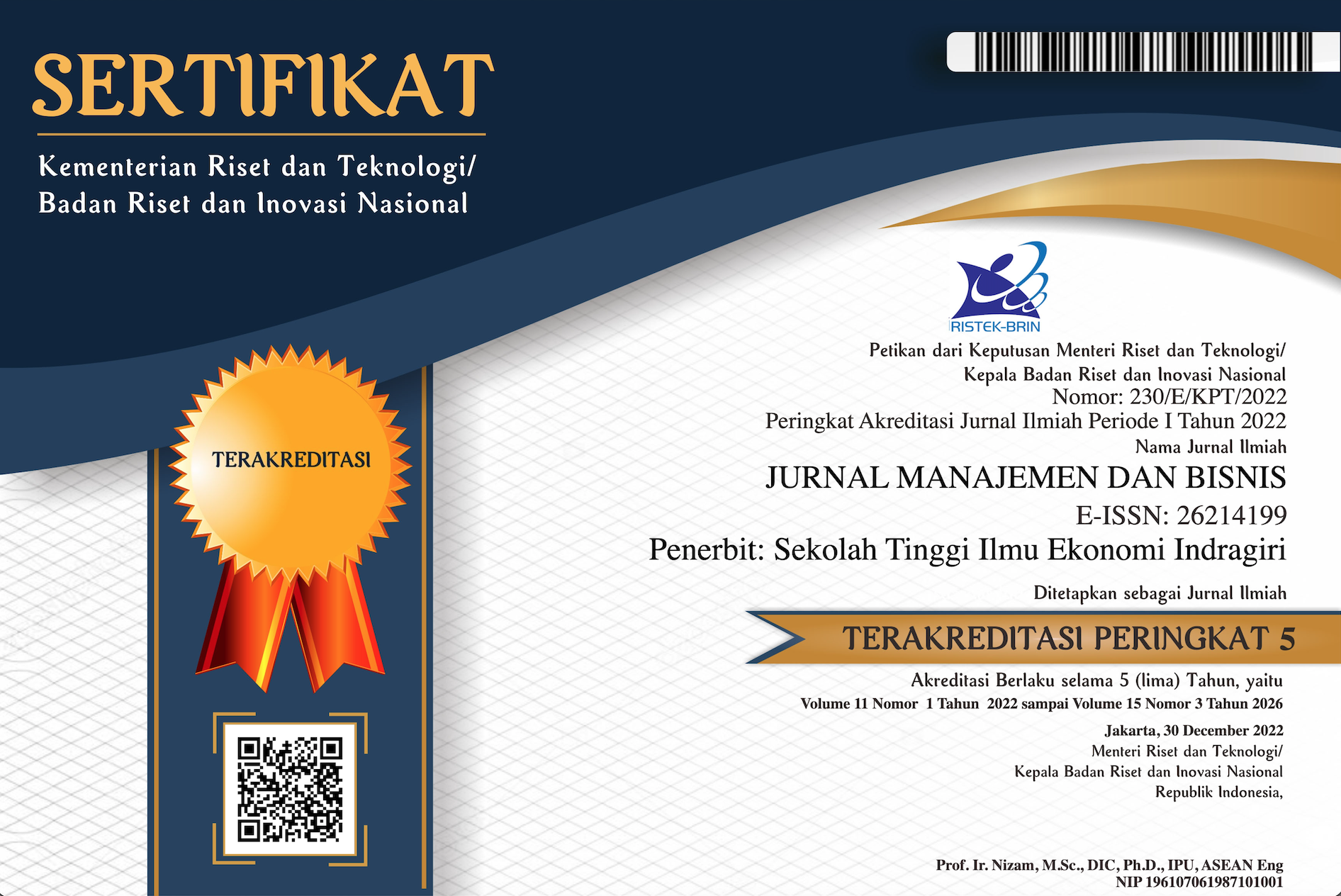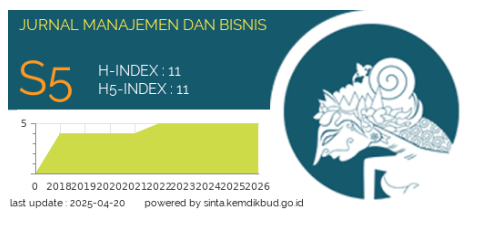THE INFLUENCE OF TOTAL DEBT AND OPERATIONAL COSTS ON REMAINING OPERATING RESULTS IN KARTIKA COOPERATIVE PRIMARY 0302/INHU
DOI:
https://doi.org/10.34006/jmbi.v11i1.102Keywords:
Total Debt, Operating Costs, Remaining Operating ResultsAbstract
Every cooperative to carry out its operational activities, of course, cooperatives need
funds, both funds sourced from internal parties of the cooperative itself and external parties such
as investors or in the form of loans from financial institutions, namely banks. Funding and
investment are one of the factors that will greatly affect the company's profit. If the company has
an increasing debt burden, the investment financed by the debt provides greater income than the
cost of debt.
Thisresearch was conducted at the Kartika Cooperative Primary 0302/Inhu. The purpose
of the study was to determine the effect of Total Debt and Operating Costs on the Remaining
Operating Results at the Kartika Cooperative Primary 0302/Inhu, either simultaneously or
partially.
The method used in this study is a method that uses multiple regression equations. By
taking the document of the balance sheet of the Kartika Cooperative primary 0302/Inhu. The
analytical technique used in this study is quantitative, namely multiple regression analysis with
the help of the SPSS program.
The results showed that the Simultaneous Test (F test) obtained the hypothesis that Ho
was accepted and Ha was rejected, meaning that Total Debt and Operating Costs simultaneously
had no significant effect on the Remaining Operating Results. Partial Test (t-test) the effect of
Total Debt on Remaining Operating Results, the hypothesis is that Ho is accepted, Ha is rejected,
meaning that Total Debt partially has no significant effect on the remaining operating results.
Partial Test (t-test) the effect of Operating Costs on Remaining Operating Results, the hypothesis
is that Ho is accepted, Ha is rejected, meaning that Operational Costs partially have no
significant effect on the remaining operating results












